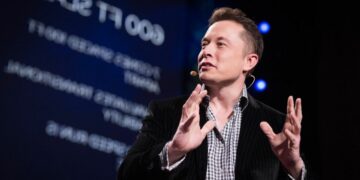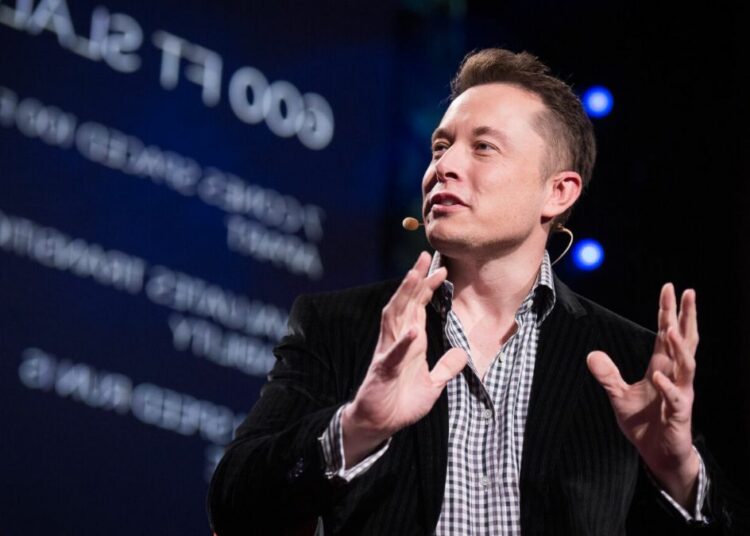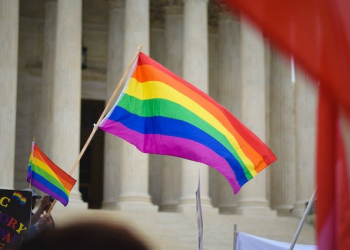Last updated on May 1st, 2022 at 04:54 pm
When the announcement was made that Twitter had just been bought, a friend of mine called and exclaimed, “Isn’t it amazing that we had to have a billionaire from South Africa help us get free speech again?”
Of course, Elon Musk is not just any billionaire. He is the person who brought us Tesla and Space X. And, oh yes, he happens to be the richest man on the planet. Little wonder that last year Time honored him as its Person of the Year—“a marker of influence,” explained the magazine, “and few individuals have had more influence than Musk on life on Earth, and potentially life off Earth too. In 2021, Musk emerged not just as the world’s richest person but also as perhaps the richest example of a massive shift in our society.” Even among influential billionaires like Amazon’s Jeff Bezos and Meta’s Mark Zuckerberg, says Time , “Musk is in a class of his own.”
He sees his mission as solving the globe’s most intractable challenges, along the way disrupting multiple industries across two decades. These include what was once the core American creation, combustion-engine automobiles, and what was once the core American aspiration, spaceflight, as well as a litany of other manifestations of our present and future: infrastructure construction, artificial intelligence, neurotechnology, payment systems and increasingly money itself through his dalliances with cryptocurrencies.
Beyond such revolutionary advancements, Musk has courageously called for major civilizational course corrections, including demographic recovery. “I think one of the biggest risks to civilization is the low birth rate and the rapidly declining birthrate,” he has stated. “So many people, including smart people, think that there are too many people in the world and think that the population is growing out of control. It’s completely the opposite. Please look at the numbers—if people don’t have more children, civilization is going to crumble, mark my words.”
Words are indeed critical, and the freedom to speak them has been a core component of American liberty since the Founding. “If there is any fixed star in our constitutional constellation,” declared the Supreme Court in 1943 (West Virginia State Board of Education v. Barnette), “it is that no official, high or petty, can prescribe what shall be orthodox in politics, nationalism, religion, or other matters of opinion or force citizens to confess by word or act their faith therein.”
But as gathering storm clouds increasingly obscure our view of that fixed star, the acquisition of Twitter by one of its most popular users—Musk already has some 84 million followers—could hardly be more timely. “Having a public platform that is maximally trusted and broadly inclusive,” he has declared, “is extremely important to the future of civilization.”
Author Jacob Mchangama agrees: “A world with less free speech,” he warns, will be “less tolerant, democratic, enlightened, innovative, free, and fun.” All of which makes the Left’s objections to Musk’s acquisition of Twitter laughable hypocrisy, or, as the Wall Street Journal calls it, “progressive panic” and “hilarious wailing.” For his part, Musk himself is committed to free speech even when it attacks him personally. “I hope that even my worst critics remain on Twitter,” he tweeted, “because that is what free speech means.”
As monumental as is Musk’s purchase of Twitter, he has not won the battle for free speech but has simply stepped up to lead the charge—and it is up to the rest of us to do our part. “Eternal vigilance against both encroaching state power as well as the opaque, automated, and centralized privatized control of speech,” says Mchangama, “will be required for free expression to fulfill its promise as a necessary precondition for democracy, freedom, and equality.”
Such vigilance first requires us to engage in “the rediscovery of America,” as William F. Buckley urged decades ago. According to author Matthew Continetti,
This “rediscovery of America” must center on America’s founding documents… The Constitution not only protects human freedom but also creates the space for the deeper satisfactions of family, religion, community, and voluntary association…. One cannot be an American patriot without reverence for the nation’s enabling documents. One cannot be an American conservative without regard for the American tradition of liberty those charters inaugurated…. The preservation of the American idea of liberty and the familial, communal, religious, and political institutions that incarnate and sustain it—that is what makes American conservatism distinctly American. The Right betrays itself when it forgets this truth. Why? Because the job of a conservative is to remember.
But even remembering is not enough. We must then proceed to protect free speech by boldly speaking and acting. “The only thing necessary for the triumph of evil,” Edmund Burke is reported to have said, “is for good men to do nothing.” It is time to remember, time to speak, and time to act by emulating the heroic Founders who declared their irrevocable commitment to our Creator-endowed rights of “Life, Liberty and the pursuit of Happiness.” Never since that Declaration have those rights been so threatened. Once again it is time for heroes.




















Discussion about this post